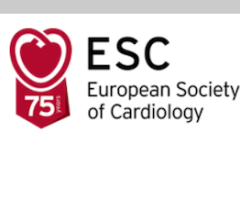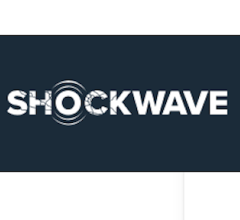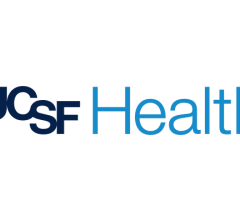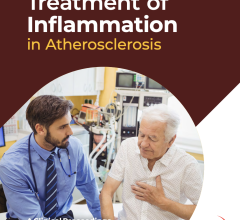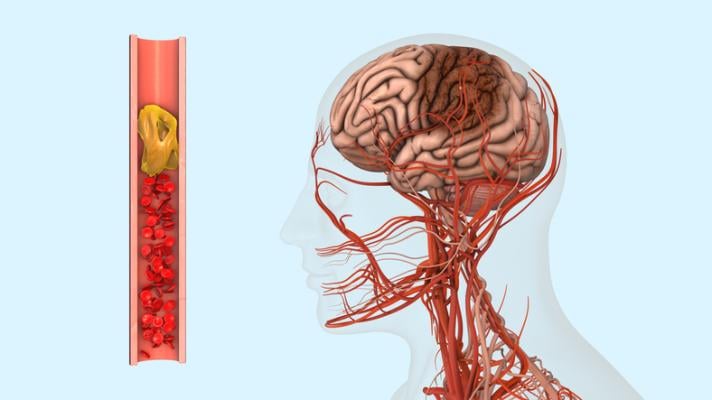
Researchers presenting late-breaking science during the second day of the American Stroke Association’s International Stroke Conference, ISC 2024, reported they found an artificial intelligence (AI) system to help guide treatment decisions for stroke patients led to improved stroke care quality and fewer recurrent strokes, heart attacks and vascular death among stroke survivors three months after a stroke. Image courtesy: Getty Images
February 8, 2024 — The latest late-breaking science from the second day of the American Stroke Association’s International Stroke Conference, ISC 2024, shed light on the use of artificial intelligence (AI) to help guide treatment decisions for stroke patients.
Researchers found an artificial intelligence (AI) system to help guide treatment decisions for stroke patients led to improved stroke care quality and fewer recurrent strokes, heart attacks and vascular death among stroke survivors three months after a stroke.
Reporting from the AHA/ASA released this afternoon focuses on a clinical trial called GOLDEN BRIDGE II which conducted in hospitals in China, which compared artificial intelligence-based evaluation and treatment for ischemic stroke patients to standard evaluation and treatment by the stroke care team.
Findings
Ischemic stroke survivors who received care recommendations from an artificial intelligence (AI)-based system had fewer recurrent strokes, heart attacks or vascular death within three months, compared to people whose stroke treatment was not guided by AI tools.
“This research showed that an artificial intelligence-based clinical decision support system for stroke care was effective and feasible in clinical settings in China and improved patient outcomes,” said lead study author Zixiao Li, M.D., Ph.D., chief physician, professor and deputy director of neurology at Capital Medical University’s Beijing Tiantan Hospital in Beijing, China in a news release issued by the American Heart Association/American Stroke Association. Zixiao Li added, “This type of technology aids neurologists by facilitating the sharing of information between humans and AI, using their combined strengths.”
Ischemic stroke is the leading cause of death in China, according to Li. Timely evaluation and decisions for stroke diagnosis and treatment are critical to restore blood flow and minimize the amount of injury to the brain. In 2021, there were 7.44 million deaths attributable to stroke worldwide and about half of those were ischemic stroke, according to the most recent data in the 2024 Heart Disease and Stroke Statistics: A Report of U.S. and Global Data From the American Heart Association. In the U.S., 87% of strokes are ischemic strokes, which occur when blood vessels to the brain become narrowed or clogged with plaque, cutting off blood flow to the brain.
In the clinical trial called GOLDEN BRIDGE II, 77 hospitals in China were randomly assigned to deliver diagnosis and treatment for ischemic stroke patients either based on recommendations from the AI technology system or assessments and recommendations by the hospitals’ stroke care team. The AI system integrated participants’ brain imaging scans interpreted by AI with established clinical knowledge for stroke diagnosis, stroke classification and guideline-recommended treatment and strategies to prevent secondary stroke.
For the more than 20,000 participants in the study, researchers then measured the number of vascular events — ischemic strokes, hemorrhagic strokes, heart attacks or death due to a vascular event — among all study participants after their initial ischemic stroke during a three-month follow-up period.
The analysis found:
- Using the AI-based clinical decision support system reduced the chances of new vascular events by 25.6% during the three-month period after the initial stroke, and also improved stroke care quality with patients more likely to be treated with guideline directed medical therapy.
- At three months, participants treated at the hospitals using AI support experienced fewer total vascular events compared to people receiving standard post-stroke evaluation and treatment (2.9% vs 3.9%).
- There were no statistically significant differences in physical disability levels between patients in either the AI-guided care or the standard care group at three months, as assessed using a modified Rankin Scale Score — a tool used to determine levels of disability in people who have experienced a stroke.
“The reduction in new vascular events is a significant finding because it shows that AI has the potential to make a real difference in stroke care and benefit this large population of stroke survivors,” said Li, who is also a professor at the China National Clinical Research Center for Neurological Diseases; the Research Unit of Artificial Intelligence in Cerebrovascular Disease at the Chinese Academy of Medical Sciences; and the Chinese Institute for Brain Research, all in Beijing.
“In the future, we hope to have more AI applications validated through clinical research and hope that the clinical decision support system can be expanded to include more aspects of stroke care, including reperfusion therapy and long-term secondary prevention, rehabilitation and so on. At the same time, we also hope that AI applications can be broadened to apply to other health conditions.”
Additional Study Details
The research was conducted between January 2021 and June 2023 in 77 hospitals across various regions of China. A total of 21,603 adults hospitalized for acute ischemic strokes were included in the study — about one-third were women and participants’ average age was 67 years.
The number of participants receiving each treatment approach was nearly the same, with 11,054 receiving AI-evaluation and treatment, and 10,549 receiving usual care and treatment based on the hospital’s neurologists’ assessments and recommendations. Almost all of the participants (21,579) were included in the final data evaluations because they completed the three-month follow-up.
The neurologists in the hospitals testing the AI technology completed training on the stroke AI-clinical decisions support system before the study began. In addition, noted the news summary, stroke care quality was measured by internationally recognized composite score of evidence-based performance measures for acute ischemic stroke care quality including eight measures at the beginning of hospitalization and five measures at discharge, Li said.
Study limitations include that hospitals were randomized to the AI-based strategy or standard care rather than individual patients; and differences in care patterns and outcomes among the hospitals and subsequent outpatient care may have impacted the results. Additionally, whether the improvement in care and outcomes can be sustained needs further evaluation, and the functionality of the stroke AI-based clinical decision support system may need to be constantly updated with revised evidence-based clinical guidelines. More extensive and sustainable clinical application models of the stroke AI-based clinical decision support system for other health conditions and in other countries need to be explored. Co-authors, disclosures and funding sources are listed in the manuscript.
This year’s International Stroke Conference, being held at the Phoenix Convention Center in Phoenix, Feb. 7-9, is widely acknowledged to be the world premier meeting for researchers and clinicians dedicated to the science of stroke and brain health.
More information: www.heart.org, www.stroke.org
Follow DAIC’s ISC 2024 news coverage here.


 February 04, 2026
February 04, 2026 

